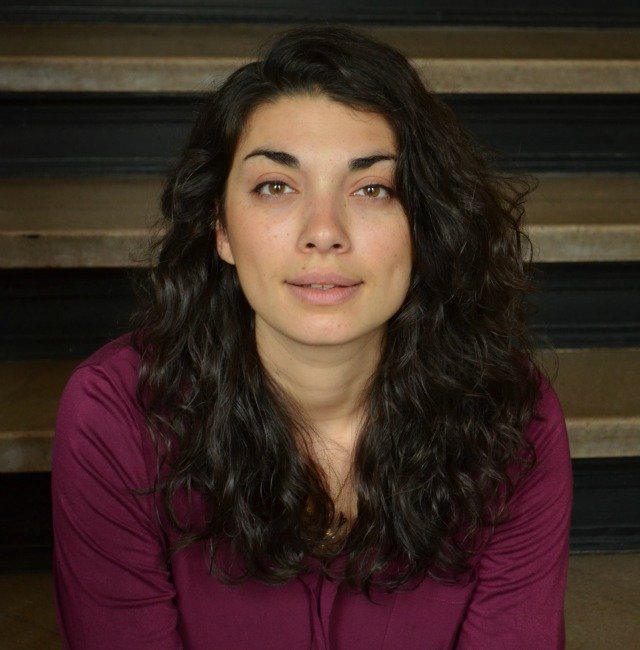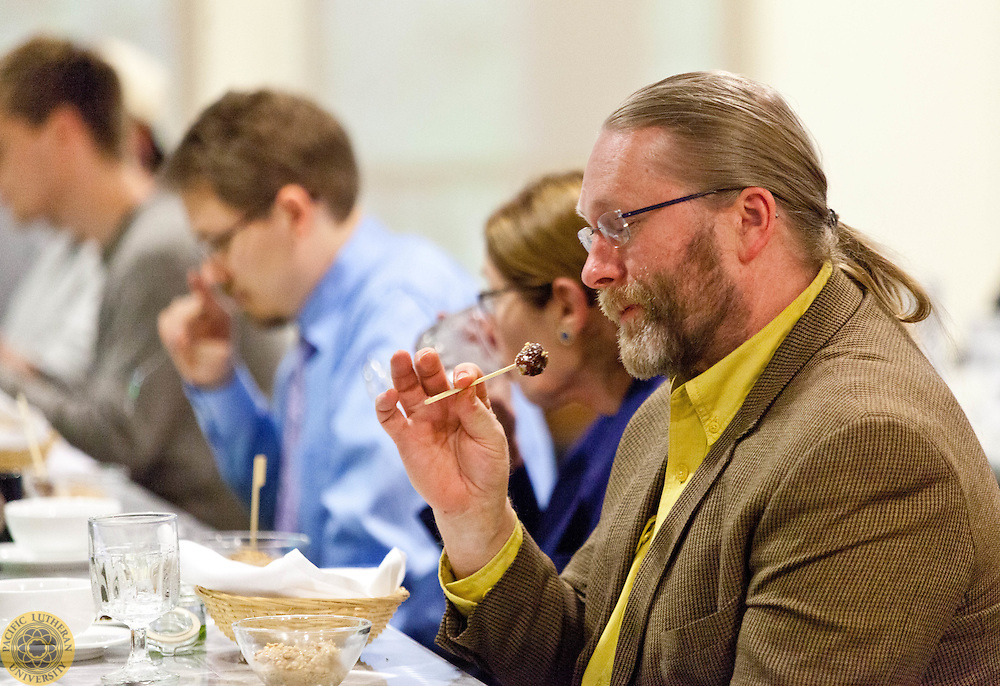Page 56 • (806 results in 0.042 seconds)
-

A Flutist’s Unplanned Path to Success Internationally renowned flutist Jodie Rottle ’10 advises undergraduates without a clear plan to pause, make slow progress and explore as many new possibilities as they can. (Photo courtesy Jodie Rottle) Jodie Rottle ’10 Finds Fame Even Without a Direct…
everything from literature and white noise to toys and wolf howls. (The music is hauntingly original and, trust us, made to be heard rather than read: Listen here.) Manhattan, in fact, turned out to be quite the meaningful stop for Rottle: She also met the man who would become her fiancé, a jazz musician originally from Australia who was pursing his doctorate at the School of Music. After moving to his home continent, Rottle continued networking and ended up filling in as the flutist for Kupka’s Piano, a
-

TACOMA, WASH. (Oct. 13, 2017)- “We made a magazine!” Taryn Collis exclaimed to a group of Pacific Lutheran University students and several inmates at the Washington Corrections Center for Women. “It’s impressive,” continued Collis, an actor and educator with Seattle-based Freehold Theatre Lab Studio. “Everybody…
as well as a diversity and literature class. “They rise to the challenge,” Smith said of the inmates she teaches. “They are just amazing students. They support each other and cheer each other on.” In spring 2014, Smith’s work at PLU — which includes serving as director of the Center for Gender Equity — and her work at WCCW collided. The student directors for “The Vagina Monologues” connected with Collis to bring the production to the prison. The audience was “electrified,” as Smith says, leading
-

Sophia Barro ’22 is a senior education major and religion minor at PLU. She recently completed full-time student teaching at Lakeview Hope Academy. We spoke with Barro about her experiences at PLU and as a student teacher, and about the values she hopes to inspire…
. I think it is really important to have diversity responsive literature in classrooms and I always tie in social justice components including identity, justice, diversity, and action in my teaching. I always said that no matter which school I end up working at, I would uphold that same philosophy. I am happy to have finally chosen where I will begin teaching after graduation. I will be a third-grade teacher at St. Patrick Catholic School in Tacoma. I think it is so awesome that I will be able to
-

Henri Coronado-Volta grew up in Seattle, Washington, and chose PLU because the smaller school offered the opportunity to build community, a chance to continue swimming, and living close to home—but not too close. He double majored in global studies and Hispanic studies and minored in…
skills, and provided opportunities to improve my Spanish through classes and study away programs. Networking opens up many opportunities. While at Seattle Children’s, I was responsible for reaching out to find traumatic brain injury resources in Alaska for a study at Children’s. In the fall of 2022, I did preliminary literature review research and interview-question Spanish translation for a University of Washington palliative care and dementia issues project. As part of that project, I’m helping
-
Biology Courses Take the following two introductory courses: BIOL 225: Molecules, Cells and Organisms BIOL 226: Genes, Evolution, Diversity and Ecology You might also consider taking some of the
Speaking Courses Most dental schools require applicants to take two English courses prior to matriculation. The English requirement is intended to demonstrate competency in grammar and composition as well as comprehension and analysis of written work. In general, the English requirement is met by taking courses that dental schools would recognize as writing or literature courses. In addition, some schools recommend that you take a course in public speaking.Mathematics Courses There are only a handful
-
May 17, 2021 If you would like to join us for this event: Zoom Link: https://plu-edu.zoom.us/j/91514705167
: The focus of this essay is to examine the effects that the United States’ population has on foreign policy issues made by the executive branch as their opinions and attitudes change during ongoing international issues. Previous literature have not come to a clear conclusion on whether public opinion matters in international relations. Two time periods were chosen to examine which were the Vietnam War, specifically 1964-1972, and the September 11, 2001 terrorist attacks. What was found through this
-
Biology Courses Take the following two introductory courses: BIOL 225: Molecules, Cells and Organisms BIOL 226: Genes, Evolution, Diversity and Ecology You might also consider taking some of the
Speaking Courses Most dental schools require applicants to take two English courses prior to matriculation. The English requirement is intended to demonstrate competency in grammar and composition as well as comprehension and analysis of written work. In general, the English requirement is met by taking courses that dental schools would recognize as writing or literature courses. In addition, some schools recommend that you take a course in public speaking.Mathematics Courses There are only a handful
-

While many of their classmates braved a chilly winter back in Parkland, three Lutes sat on a beach in Hawaii watching whales. No, it wasn’t vacation. It was research.
and sharing results with the broader scientific community,” Smith said. “The extensive reading and thinking about primary literature that accompanies research allows students to further explore and identify the questions and topics that excite them.” The experience also is good for students who don’t become professional researchers, she said. “For students who do not go on to become research scientists, this serves them as lifelong learners,” Smith said. “For others who do pursue research careers
-

As you know, PLU went through a difficult process of prioritization this year, responding to lower enrollments and seeking to proactively budget for a sustainable future rather than wait until we reached emergency conditions. This led to hard conversations and hard choices, ultimately made by…
understanding ancient literature in regards to sexuality and autonomy and critiques the current systems we have in place of acknowledging sexuality and addressing issues of consent. We are incredibly proud of these and all our other Classics graduates. We regret that this effective, innovative, and valuable program will no longer be available as a major, but we are very happy to be retaining our Classics minor, and a related minor in Early Christian Studies through a partnership with the Religion Department
-
Carla Santorno, a national award-winning superintendent, has led an academic improvement effort that has increased the Tacoma Public Schools graduation to 89.8 percent for the class of 2019.
10th Anniversary CelebrationDr. Paul ManfrediDr. Geoff FoyMichele Anciaux AokiDr. Thad WilliamsLi Bin 李斌Weiwei PengBridget YadenTamara WilliamsJoanna GregsonCarla SantornoAllan BeltonProfessor Yao LeyeProfessor Gao Wei 高伟Dr. Deng BoProfessor Dongmei HuangDr. Paul ManfrediPaul Manfredi’s research concerns modern and contemporary Chinese poetry and art, modernism, and urban culture in China. His articles have appeared in Modern Chinese Literature and Culture, Journal of Modern Literature in
Do you have any feedback for us? If so, feel free to use our Feedback Form.


